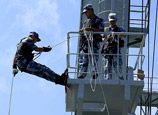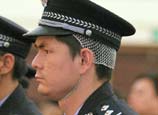
Hanhua, which made its first business flight in July 2012, has two Bombardier Challenger 300 aircraft and about 70 percent of its clients are private entrepreneurs.
Donghai Jet Co Ltd, based in Shenzhen, in the south of Southern China's Guangdong province, runs six business jets and each of those are in the air for around 10 hours a week, said Zhou Xiaoxiao, the deputy manager of its marketing department.
Zhou said its clients are mainly private-owned energy businesses.
Hanhua and Donghai say they are both optimistic about prospects for the business aviation market.
Deer Jet Co Ltd, a subsidiary of air transportation, real estate, retailing, financial solutions, and tourism conglomerate HNA Group, is considered the largest business jet operator in China with 55 aircraft.
It is forecasting that China's business jet fleet will be over 500-strong by 2015, although officials admit the slowdown has had some affect on its levels of business.
"The potential demand for business jets is huge and the market will develop fast, when the economy improves," Deer said in a statement.
However, it has been far from clear blue skies for the some in the sector.
The government's strict regulations to fight corruption and encourage frugality is expected to hit some operators hard, especially those flying in and out of Beijing.
"Our business departures from Beijing have dropped by over 20 percent since the regulations were released in late 2012," said one business jet operator, who refused to be identified.
In response to the austerity measures, not just government officials and those from State-owned companies have cut back on extravagant travel, even some private-owned companies have scaled back their business jet reservations, he added.


















 Different walks of life in China : Labor Day
Different walks of life in China : Labor Day


![]()
